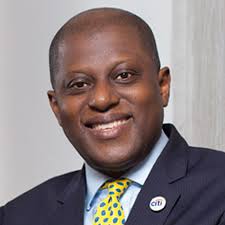The Nigerian military has been battling insurgency for over a decade using Kinetic and non-Kinetic methods.
Although noticeable successes have been recorded over the years, the security challenges keeps mutating, opening up new frontiers of engagement for the military and other security agencies.
Apart from the Boko Haram in the North-East, terrorists under the guise of bandits and kidnappers have emerged in the North-West while the North-Central contends with issues of farmers-herders conflicts.
Similarly, the security forces also have to deal with IPOB terrorists in the South-East and oil thieves and vandals in the South-South regions.
However, achieving the desired result using the same old methods in addressing terrorism in Nigeria could be a mirage considering the mutating nature of the security challenges.
Security experts believe that ending the security challenges will require the deployment of artificial intelligence to compliment current efforts, so as to deal decisively with the insurgents, terrorists and other criminal elements.
Artificial Intelligence, also called machine intelligence or robotics, is a rapidly evolving technology bringing revolutionary changes and providing technical edge in almost all facets of human endeavours, including military operations.
It is deployed by security agencies across the world to quell riots, crisis and in war situations.
Already, the Nigerian military has keyed into this, and with support from the Federal Government, has began acquiring relevant facilities, including Unmanned Combat Aerial Vehicles (UCAVs) to support the war against insurgency.
“These UCAVs will no doubt bring substantial value to what the service is doing presently, particularly the ongoing fight against insurgency, and will continue to be doing it.
According to the Chief of Air Staff (CAS), Air Marshal Hassan Abubakar, the Federal Government has recently acquired 45 more aircraft, helicopters, and other platforms to the Nigerian Air Force (NAF) in the last six months.
Abubakar said that the aircraft include: four-diamond 62 multi-purpose aircraft, two T-129 attack helicopters, and one beachcroft 360 aircraft.
“Others that are pending include: 2Kasa 295 medium airlift surveillance aircraft, 12 AH10 attack helicopters, and 24 M346 attack aircraft.
“All these acquisitions further demonstrates the Federal Government’s deep commitment to equipping the military for the safe conduct of training and to meet the nation’s security challenges.
“The whole idea is to also send the right message to Nigerians that the Federal Government is doing everything humanly possible to ensure that our communities are safe,“Abubakar said.
In line with this, the federal government said it has concluded arrangements to establish an artificial intelligence/robotics centre.
The Centre will properly utilise and deploy emerging technologies in areas of networking, research, development, and information and communication security.
The initiative will enable the military to also use data secured through artificial intelligence to achieve the target of securing Nigeria from local and foreign aggressors.
The initiative has attracted the attention of some security experts, who said it will help in tackling the security challenges head on and ultimately bringing it to an end completely.
Erik Brynjolfsson, Director MIT Initiative on Digital Economy, said the world has evolved to an extent that no country would go to war of any nature without the use of artificial intelligence.
Also, Judith Donath of Harvard University’s Berkman Klein Center for Internet and Society, said that nowadays, most countries depended on artificial intelligence in most things they do, especially in military operations.
But it has come with some challenges for Nigeria’s military, according to a security expert, Dr Hassan Sadique who acknowledged that technology was a force multiplier for every military or security outfit.
Sadique said the deployment of more sophisticated technology by the military would strengthen their capability and assist in achieving set targets.
The expert, however, expressed fears that the military may have difficulty of convergence and integration of the new technologies to existing support systems on ground.
“So, you have an existing platform, how do you bring in another support system, in this case, a very advanced technology called Artificial Intelligence.
“How will it work closely with what you have on ground already? That is the area that I am a bit concerned and worried about.
“Though the Nigerian military can take advantage of an advanced technology, especially artificial intelligence, my opinion is that it is not likely our military will be able to have that convergence for a lot of reasons.
“AI needs internet and infrastructure that will allow a very seamless integration and as you know in Nigeria we don’t have all these.
“So, those are probably the things we need to work upon first before we talk of sophisticated technology like AI.
“It is a very advanced technology that will definitely require some infrastructure that will support its integration with an existing military structure“, he said.
He, however, acknowledged the fact that it was necessary, because almost all advanced military in the world use artificial intelligence as a force multiplier that could assist them in achieving their set objectives.
Sadique also said its usage would no doubt eliminate personnel casualty and increase the effectiveness of military operations in Nigeria. (NANFeatures)




